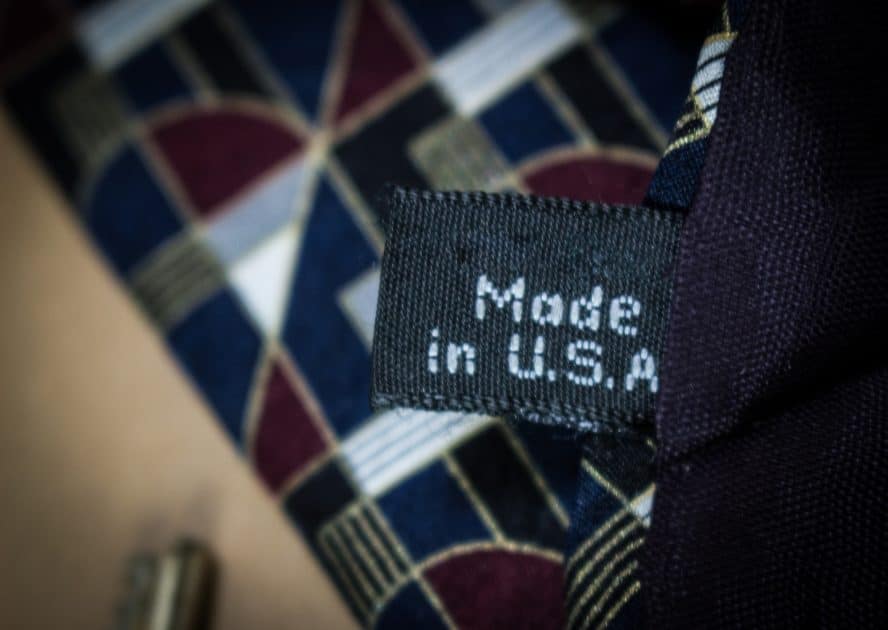With very few things being made in the U.S. today, it is always great to see “Made in the USA” on items. However, be careful putting “Made in the USA” on your designs. To do so you must meet certain requirements as laid out by the Federal Trade Commission (FTC) “Made in the USA” standard.
Using Made in the USA Correctly
“Made in the USA” can be used two ways:
- with qualifications – describe how much domestic processing and content make up your design or
- without qualifications – no description necessary.
However, as pointed out in the FTC standards, “[f]or a product to be called Made in USA, or claimed to be of domestic origin without qualifications or limits on the claim, the product must be “all or virtually all” made in the U.S. Further, “[a]ll or virtually all” means that all significant parts and processing that go into the product must be of U.S. origin. That is, the product should contain no — or negligible — foreign content.”
Additionally, the Textile Fiber Products Identification Act and Wool Products Labeling Act requires that a Made in USA label be placed on most clothing and other textile products “if the final product is manufactured in the U.S. of fabric that is manufactured in the U.S., regardless of where materials earlier in the manufacturing process (for example, the yarn and fiber) came from.”
The California Wrinkle
Meeting the FTC’s general “Made in the USA” guidelines are important. If you are going to be selling to California consumers, you need to know about a wrinkle in the law as it relates to California. Prior to January 1, 2016, if you were going to sell your designs to California consumers and claim they were “Made in the USA”, 100% of the fabric must be sourced in the U.S. from U.S. materials and manufactured in the U.S. The law was changed to 95% of the materials to line up more with the FTC’s regulations. Thus, only 5% of the materials can be sourced elsewhere.
Apparently, New Balance did not get the memo about the California wrinkle. In late 2016, they were slapped with a class action lawsuit (Dashnaw v. New Balance Athletics, Inc), for consumer fraud along with other claims. The suit was filed by three California residents. It alleged that New Balance violated California laws when misrepresenting that some of it shoes were “Made in the USA”. The shoes in fact contained a substantial amount of foreign made components. The complaint further alleged that New Balance acknowledged it had an advertising policy to advertise shoes were “Made in the USA” when they had at least 70% domestic materials. This meant that 30% of the shoes were made from foreign components and/or labor. This policy was in direct contravention of California law. Since 30% of a product is more than the 5% of the allowed foreign content/labor, the product cannot claim to be “Made in the USA”.
After the case was making its way through the court for 2 years, New Balances reached a preliminary settlement deal.Under the deal, New Balance agreed to settle the claims for $750,000 with $200,000 for settlement administration costs and $15,000 to the lead plaintiffs.
You can see what effect this type of lawsuit can have on the bottom line of your business. So, let this be a lesson to all designers. It is important to stay in compliance with the FTC regulations when labeling your designs “Made in the USA”. Additionally, if you are selling your products in California, don’t forget the California wrinkle. Remember, “Made in the USA” must be a fact and not fiction.
- How to Protect Your Fashion Design from a Fast Fashion Knockoff - September 19, 2019
- “Made in the USA” – Fact or Fiction? - March 29, 2019
- Advertising Rules That Keep Influencers Out of Trouble With the FTC - January 5, 2019


